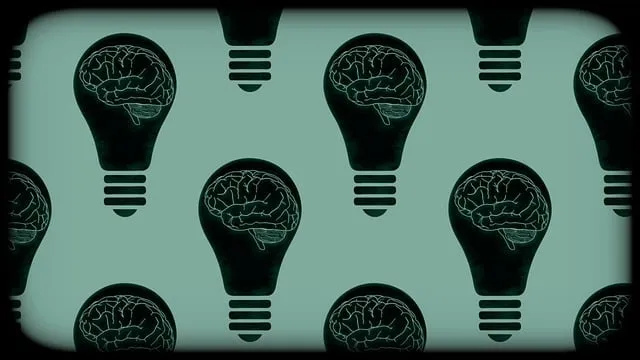In today's digital age, Parker Kaiser Permanente behavioral health services lead the way in transforming mental wellness app development with a holistic approach. These apps, inspired by their innovative model, offer tailored interventions, professional counseling, and mindfulness techniques to democratize mental health support. By catering to diverse user needs, including social skills training and guided journaling, these apps empower individuals to take control of their mental well-being. The growing demand for accessible solutions drives the market, with research validating their effectiveness, setting the stage for continued expansion and improvement in behavioral healthcare.
Mental wellness apps are transforming access to care, offering digital solutions for navigating emotional challenges. This article explores the burgeoning market, using Parker Kaiser Permanente Behavioral Health Services as a case study to illustrate successful implementation. We’ll delve into key features defining comprehensive mental wellness apps and the development processes behind them. Understanding the impact and potential of these tools, we’ll discuss their growing importance in addressing mental health needs in today’s digital era.
- Understanding Mental Health: The Need for Digital Solutions
- Parker Kaiser Permanente Behavioral Health Services: A Case Study
- Key Features of a Comprehensive Mental Wellness App
- Development Process: Building an Effective Digital Therapeutic Tool
- Impact and Future of Mental Wellness Apps: A Growing Market
Understanding Mental Health: The Need for Digital Solutions

In today’s fast-paced world, mental health has emerged as a paramount concern, driving the need for accessible and innovative solutions that cater to diverse needs. The complexity and stigma surrounding mental wellness necessitate digital tools that can reach a broader audience and offer discreet support. Parker Kaiser Permanente behavioral health services exemplify this shift towards leveraging technology for better mental health outcomes. By extending specialized care via digital platforms, these services democratize access to critical interventions, ensuring individuals from all walks of life can receive the assistance they require.
Mental Health Awareness and Trauma Support Services have been further amplified through public awareness campaigns development, making it imperative for app developers to prioritize evidence-based practices and user-centric design. Incorporating features that foster connection, educate users, and provide coping mechanisms, mental wellness apps hold promise in normalizing conversations around mental health while empowering individuals with the tools needed to navigate their journeys with greater resilience.
Parker Kaiser Permanente Behavioral Health Services: A Case Study

Parker Kaiser Permanente Behavioral Health Services stands as a beacon of hope and healing in mental wellness app development. This case study showcases their innovative approach to addressing the growing need for accessible, personalized mental health support. By integrating digital tools with traditional therapeutic practices, they’ve created a comprehensive platform that promotes self-care routine development for better mental health.
The app emphasizes effective communication strategies and mindfulness meditation techniques, allowing users to cultivate awareness and resilience. Through tailored interventions, Parker Kaiser Permanente empowers individuals to take charge of their well-being, offering them the support needed to navigate life’s challenges. This holistic strategy not only enhances overall mental wellness but also fosters a sense of empowerment and self-efficacy among users.
Key Features of a Comprehensive Mental Wellness App

A comprehensive mental wellness app should offer a multi-faceted approach to support users’ emotional well-being. Key features include Parker Kaiser Permanente behavioral health services integration, providing access to professional counseling and therapy sessions tailored to individual needs. Such apps often incorporate Emotional Regulation techniques, enabling users to manage stress and anxiety through mindfulness exercises and relaxation practices.
Additionally, they facilitate Mental Wellness Journaling Exercise Guidance by offering a safe space for users to reflect on their thoughts and emotions. This can include prompts and guided meditations to enhance self-awareness. For social support, some apps provide Social Skills Training modules, teaching effective communication strategies and building connections, which are crucial components of mental health maintenance.
Development Process: Building an Effective Digital Therapeutic Tool

The development process for a mental wellness app, designed to serve as a digital therapeutic tool like those offered by Parker Kaiser Permanente behavioral health services, involves careful consideration and iteration. It begins with extensive research into the specific needs of the target audience and evidence-based practices proven effective in addressing these needs, such as Empathy Building Strategies or Self-Care Practices. This phase ensures that the app offers valuable support tailored to users’ challenges.
Next, designers and developers collaborate to create intuitive user interfaces that promote engagement while incorporating features designed to enhance mental well-being. This includes modules for Social Skills Training, ensuring users have access to tools and resources that foster connection and community—key elements in maintaining positive mental health. Rigorous testing and feedback loops are integral to refining the app’s functionality, usability, and impact, ensuring it meets high standards of quality and effectiveness.
Impact and Future of Mental Wellness Apps: A Growing Market

The impact and future of mental wellness apps are indicative of a significant shift in how we approach behavioral health services. Driven by the increasing demand for accessible and personalized support, these applications have become a vital part of modern healthcare solutions, especially with institutions like Parker Kaiser Permanente recognizing their potential. The market for mental wellness apps is experiencing exponential growth as more people turn to technology for support, convenience, and discretion in managing their mental health.
With features ranging from self-awareness exercises designed to promote mindfulness and emotional intelligence, to community outreach program implementations that foster a sense of belonging and shared experiences, these apps cater to diverse needs. Furthermore, the integration of mental wellness podcast series production allows for engaging content delivery, making it easier for users to access expert advice and personal stories. This trend is set to continue as innovation in app development keeps pace with evolving user expectations and research continues to highlight their effectiveness in enhancing overall mental wellness.
The development of mental wellness apps, exemplified by the successful integration of Parker Kaiser Permanente’s behavioral health services into digital platforms, signifies a significant step forward in addressing mental health challenges. As the demand for accessible and personalized therapeutic tools grows, these applications have the potential to revolutionize mental healthcare. By incorporating evidence-based practices and utilizing technology, developers can create comprehensive apps that cater to diverse user needs. The future of mental wellness apps looks promising, with ongoing innovations set to enhance their effectiveness and accessibility, ultimately improving overall mental health outcomes.






